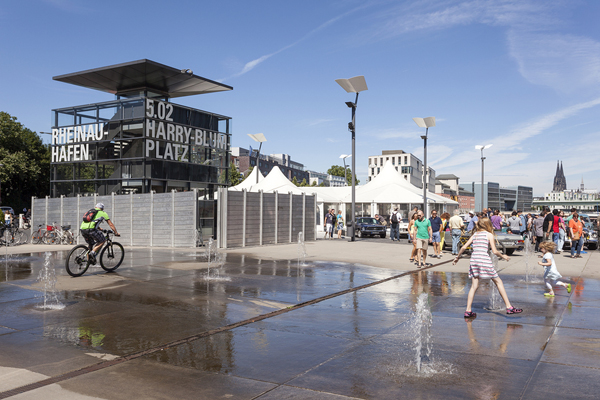Tips for Expats Driving in Cologne
Summary: Driving in a new country can be daunting. These tips offer insight into what to expect when driving in Cologne.

1. Understanding the Driving Culture
Driving in Cologne, like most of Germany, is generally orderly and drivers are expected to strictly adhere to traffic rules. The roads are well-maintained and signage is clear. However, Cologne is a busy city and traffic can be heavy, especially during rush hours. It's also worth noting that Germans drive on the right-hand side of the road.
2. Choosing the Right Car
Compact cars are recommended for driving in Cologne due to the narrow streets, especially in the city center. Smaller cars are also easier to park. However, if you plan to travel outside the city frequently, a larger car might be more comfortable.
3. Parking in Cologne
Finding parking in Cologne can be challenging, especially in the city center. There are parking garages available, but they can be expensive. Street parking is also available but it's often metered and time-limited. It's advisable to consider a place to live with a parking space if you plan to have a car.
4. Driving with an International License
Foreigners can drive in Germany with an international driving permit (IDP) for up to six months. If you plan to stay longer, you will need to obtain a German driving license. Some countries have reciprocal agreements with Germany, allowing you to simply exchange your home country license for a German one. Others will require you to take a driving test.
5. Obtaining a German Driving License
To get a German driving license, you will need to apply at the local driving license office (Führerscheinstelle). The process involves a theoretical test, a practical driving test, and a first-aid course. If your home country license is not directly exchangeable, you may also need to take driving lessons at a driving school (Fahrschule).
6. Navigating the Autobahn
The Autobahn (highway) system in Germany is well-known for sections without a speed limit. However, a recommended speed limit of 130 km/h (81 mph) applies. Be aware that German drivers tend to drive fast and confidently on the Autobahn, so make sure you are comfortable with high-speed driving.
7. Environmental Zones
Many German cities, including Cologne, have environmental zones (Umweltzonen) to reduce pollution. To drive in these zones, your vehicle needs a green environmental badge (Umweltplakette). Make sure to get one for your car to avoid fines.
About the Author
 Joshua Wood, LPC joined Expat Exchange in 2000 and serves as one of its Co-Presidents. He is also one of the Founders of Digital Nomad Exchange. Prior to Expat Exchange, Joshua worked for NBC Cable (MSNBC and CNBC
Primetime). Joshua has a BA from Syracuse and a Master's in Clinical and Counseling Psychology from Fairleigh Dickinson University. Mr. Wood is also a licensed counselor and psychotherapist.
Joshua Wood, LPC joined Expat Exchange in 2000 and serves as one of its Co-Presidents. He is also one of the Founders of Digital Nomad Exchange. Prior to Expat Exchange, Joshua worked for NBC Cable (MSNBC and CNBC
Primetime). Joshua has a BA from Syracuse and a Master's in Clinical and Counseling Psychology from Fairleigh Dickinson University. Mr. Wood is also a licensed counselor and psychotherapist.
Some of Joshua's articles include Pros and Cons of Living in Portugal, 10 Best Places to Live in Ireland and Pros and Cons of Living in Uruguay. Connect with Joshua on LinkedIn.
Additional Information:
- Public Transportation in Cologne
- Best Markets in Cologne
- Retire in Cologne Guide
- 7 Tips for Living in Cologne
- Pros & Cons of Living in Cologne
- Tips for Expats Driving in Cologne
- Cost of Living in Cologne
- Health Care in Cologne
- The Insider's Guide to Cologne
- 5 Tips for Living in Cologne, Germany
- Healthcare & Health Insurance in Germany
- Best Places to Live in Germany
- Real Estate in Germany
- Pros & Cons of Living in Germany
- Homeschooling in Germany
- What It's Like Living in Cologne
- Pros and Cons of Living in Germany 2025
- 2025 Guide to Moving to Germany





